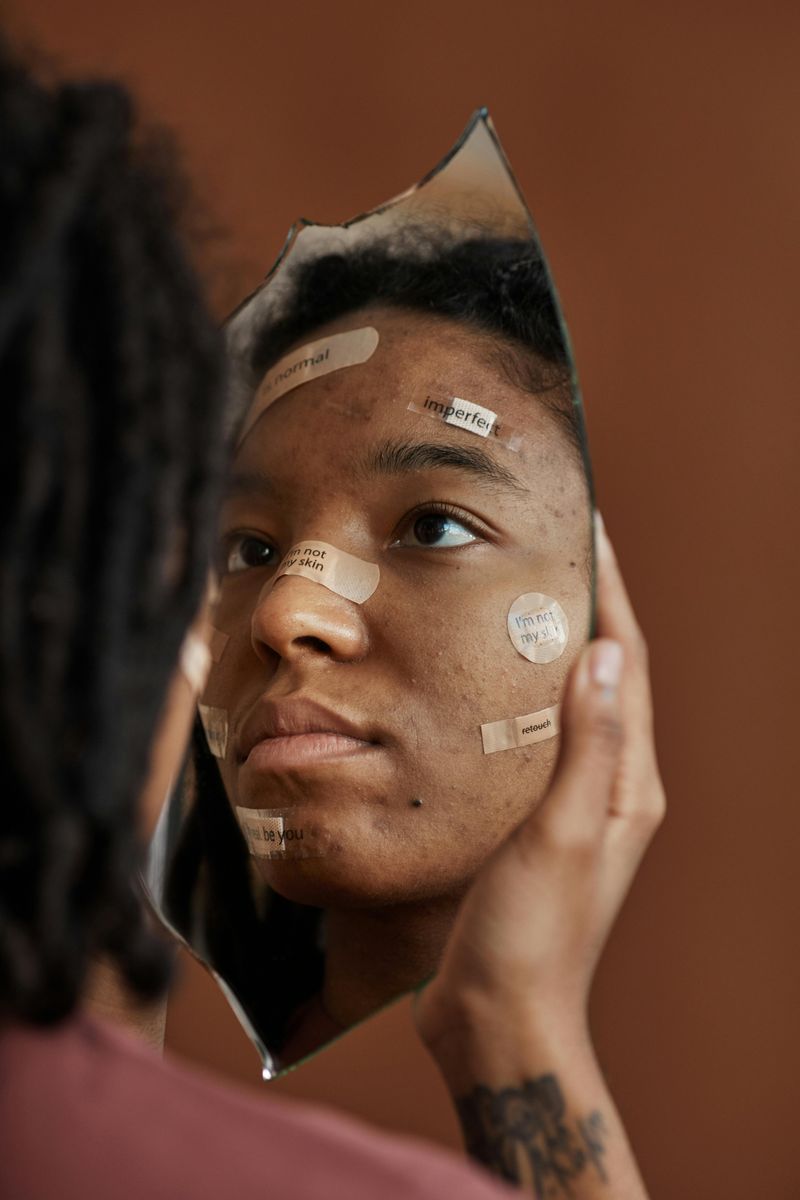We’ve all had those cringe-worthy moments that haunt us at 3 AM, leaving us tangled in regret’s sticky web. I’ve certainly racked up my fair share of blunders – from that mortifying karaoke performance to more serious missteps that genuinely hurt others. The good news? Those mistakes don’t need to become permanent fixtures in your identity. Here’s how to make peace with your past and step confidently into your future.
1. Forgive yourself first

Self-forgiveness isn’t just fluffy advice; it’s your ticket to freedom. When I botched a major presentation last year, I spent weeks mentally flogging myself before realising this punishment served no purpose.
Forgiving yourself doesn’t mean excusing bad behaviour; it means acknowledging you’re beautifully human. Try writing a letter to yourself expressing compassion for your mistake, just as you would to a dear friend who’d messed up.
2. Extract the lesson

Every blunder comes gift-wrapped with wisdom if you’re brave enough to unwrap it. My catastrophic attempt at DIY plumbing (resulting in a minor flood) taught me the value of knowing when to call professionals.
Grab a notebook and jot down three specific lessons from your mistake. What will you do differently next time? This transforms regret into growth, changing your relationship with the experience entirely.
3. Chat with your inner critic

That nasty voice in your head has likely been working overtime since your mistake. Mine sounds suspiciously like my year seven maths teacher; harsh, unforgiving, and wearing questionable cardigans.
Rather than letting this critic run wild, engage with it. When it says “you always mess up,” challenge it with evidence: “Actually, I’ve succeeded at many things.” This isn’t about silencing your critic but transforming it into a constructive coach.
4. Create a redemption story

Humans adore a good redemption arc; just look at nearly every beloved film character! After accidentally hurting a friend’s feelings, I didn’t just apologise; I consciously worked to become a more attentive listener.
Your mistake is just one chapter, not the entire book. Ask yourself: How might this mistake eventually lead to something positive? What strengths might it help you develop?
The most compelling life stories involve overcoming mistakes, not avoiding them entirely.
5. Perform a symbolic release ritual

Sounds a bit woo-woo, I know, but physical rituals can help your brain process emotional baggage. After a particularly nasty breakup where I behaved poorly, I wrote down my regrets and safely burned the paper.
Your ritual might involve burying something symbolic, releasing a balloon, or washing away words written in sand. The physical act creates a psychological boundary between past and present.
Even my skeptical, science-loving mates admit there’s something powerful about marking endings with intention.
6. Replace rumination with action

My brain loves to replay embarrassing moments on endless loop; like that time I called my boss ‘mum’ during a staff meeting. Rather than letting these thought cycles drain my energy, I’ve learned to interrupt them with purposeful action.
When regret appears, immediately do something productive: send a kind message to someone, tackle a small task, or take a brisk walk. This breaks the rumination cycle and creates new neural pathways.
Action is the antidote to anxiety about the past.
7. Surround yourself with growth-minded mates

Your social circle profoundly influences how you process mistakes. My friend Sarah never lets me wallow; she acknowledges my feelings, then gently nudges me toward solutions with her signature phrase: “Right, what’s next then?”
Seek out people who neither dismiss your feelings nor encourage endless rumination. The best supporters validate your experience while maintaining faith in your ability to evolve beyond it.
These golden friends see your mistakes as events, not character definitions.
8. Reframe your narrative

The stories we tell about ourselves have remarkable power. After bungling an important job interview, I could have thought, “I’m rubbish at interviews” or “That particular interview went poorly because I wasn’t adequately prepared.”
Notice the difference? One defines my identity; the other describes a specific event with specific causes. Pay attention to how you describe your mistakes; both internally and to others.
Language shapes reality, so choose words that leave room for growth and change.
9. Practice daily self-compassion

Moving beyond mistakes isn’t a one-off event but a daily practice of gentle self-treatment. When I catch myself slipping into harsh self-judgment about past blunders, I place my hand on my heart and speak to myself as I would to a beloved child.
Try this: Each morning, look in the mirror and say, “You’re learning and growing every day.” It feels utterly daft at first; I nearly died of embarrassment; but the brain gradually accepts what you repeatedly tell it.
10. Create something beautiful from the experience

Alchemists tried turning lead into gold; you can transform mistakes into something valuable. After a failed business venture that left me skint and embarrassed, I started a blog sharing honest lessons from entrepreneurial failure.
Your mistake might inspire art, writing, mentorship, or community service. Perhaps you can guide others through similar challenges or create something that addresses the very problem your mistake highlighted.
The Japanese art of Kintsugi repairs broken pottery with gold, creating something more beautiful than the original; be your own Kintsugi master.